By Ganesh Anil
Living a meaningful life takes various forms and one powerful way to extend that significance beyond our time on earth is through organ donation.
While we often explore avenues to enrich our lives, donating organs after death offers a unique opportunity to not only give our own life a purpose but also to inspire others. The impact of such contributions is evident in the 939 individuals who selflessly donated their organs from 2007 to 2023 in Karnataka, giving life to 4,843 people and embodying a sense of altruism.
From the inception of life’s journey, individuals may sometimes forsake human values in favour of a self-centred existence. However, as life nears its conclusion, some regret not having made a positive impact through charity, religious contributions or compassionate deeds for others. For those having a regret, ‘Jeeva Sarthakathe’ is an answer where organs can be donated. Founded in 2007 and now operating under the name SOTTO (State Organ and Tissue Transplant Organisation) Karnataka, it is governed by the Transplantation of Human Organs Act-1994 and facilitates selfless service to society even in the final stages of life.
It aims to raise awareness about organ donation within communities, ensuring that individuals with brain dysfunction can donate organs to recipients. The process is executed for registered patients through the organisation’s dedicated organ donation programme.
What is brain dysfunction?
Brain dysfunction refers to a state where the brain is completely and permanently disabled due to factors such as accidents or strokes. While conventional definitions of death often focus on the cessation of heart activity, advancements in medical technology allow the heart and lungs to be sustained artificially, even after severe brain impairment.
Once a person experiences brain death, they may appear as a living body with a functioning heart but lack any cognitive or neurological activity. The determination of brain death typically involves a thorough examination by a Government-mandated team of four doctors. This officially approved medical team, comprising a neurologist, emergency department doctor, hospital Medical Superintendent and treating doctor conducts various tests to establish that the patient is indeed brain dead.
Who can donate organs?
Not everyone who has passed away can donate organs. There are specific time limits for transplanting each organ, with considerations for the viability of organs after death. For instance, the heart has a transplant window of 4 hours, lungs 4 to 6 hours and the liver 6 to 8 hours.
Once brain activity ceases, medical professionals use machines to sustain the heart and lungs, making individuals with deactivated brains suitable candidates for organ donation.
However, there are challenges associated with organ donation after death. The body’s blood coagulates within approximately 20 minutes of death, leading to potential damage to organs such as the kidneys. While it is generally difficult for deceased individuals to donate organs, options like donating eyes and ligaments remain viable.
The process involved
In India, there have been rare instances of organ donation from deceased patients, although medical professionals caution that the outcomes may not always be optimal. Obtaining the necessary organ for transplantation involves a systematic process, especially when vital organs like the heart, heart valves, kidney, lung and liver are in consideration.
In the event of organ failure, either the hospital or the patient can visit the ‘Jeeva Sarthakathe’ website where they record comprehensive details about the patient, including blood group and symptoms and proceed to register for organ transplantation.
‘Jeeva Sarthakathe’ maintains a list of registered patients, prioritising younger age groups. In hospitals, a team of four doctors swiftly reviews the information of brain-dead patients. Once approved, this information is transmitted to ‘Jeeva Sarthakathe.’
‘Jeeva Sarthakathe’ communicates with the brain-dead patient’s blood group to determine if it matches any of the four patients on their list. Following a successful match, the organisation approves the transplant of required organs and tissues. Once the examination is complete, the approved organs — heart, kidney, lung, liver and other tissues — are made available for patients in need.
Given that a donor typically has two kidneys, one kidney is retained by ‘Jeeva Sarthakathe’ and the other kidney is transferred to the hospital in need. The hospital cross-references the list of registered patients requiring a kidney transplant within their institution and proceeds with the transplantation process.
Zonal Office in Mysuru
In Karnataka, a total of 68 hospitals encompassing various specialities are members of ‘Jeeva Sarthakathe.’ Notably, within Mysuru, six hospitals have secured membership, specialising in kidney and liver transplants.
Currently, the Regional Office of ‘Jeeva Sarthakathe’ operates in Bengaluru, Mangaluru, Hubballi-Dharwad and Kalaburagi. To further enhance the reach and accessibility of organ transplant services, a decision has been made to establish a Zonal Office in Mysuru.
Organ donation statistics
In India, there are currently over 1,21,625 individuals awaiting various organs, with more than 8,000 people in Karnataka alone and over 600 individuals in Mysuru waiting for organ transplants. 1,38,632 people have already registered for organ donation.
Breaking down the figures for Karnataka, a total of 19,051 individuals have registered, with 7,942 men and 11,107 women expressing their willingness to donate.
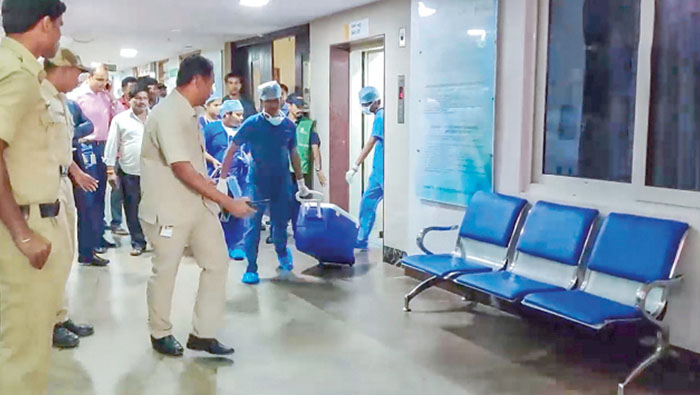
What doctors say
Organ donation is akin to serving the country and it knows no age limits. The decision to proceed with transplantation is made with careful consideration of the patient’s overall condition, requiring mental and physical strength. Post-transplant, a patient’s lifestyle plays a pivotal role in ensuring a successful recovery. Organ donation presents a unique opportunity for individuals to extend their lives by several decades. — Dr. Rajkumar P. Wadhwa, Chief Gastroenterologist, Apollo BGS Hospitals, Mysuru
The first donor group involves those who donate their organs passively, often through accidents resulting in brain death. The second group consists of individuals who choose to donate while still alive, providing an opportunity for those in need to receive organs. Here, close relatives can donate. The third group is husband and wife who donate by mutual consent. Those who come forward to make donations receive more attention and it is ensured that they face no inconvenience during the donation process. — Dr. Srinivas Nalloor, Nephrologist, Apollo BGS Hospitals, Mysuru
Organ procurement for individuals facing health issues generally does not pose significant problems or pain. However, a notable concern arises when a considerable percentage, 80 percent of people fail to wear helmets and end up passively donating their brains due to accidents. The emotional toll on their families and the resulting pain are substantial. Karnataka stands second in the country for organ donation. Particularly noteworthy is the significant participation of women as organ donors. — Dr. M. Rajani, Assistant Director / Assistant Secretary, Jeeva Sarthakathe, Bengaluru
Every hour in India, four individuals lose their lives in road accidents, often resulting in brain death. If just 5 percent of these unfortunate cases choose to donate organs, it could significantly alleviate the shortage of organs. With millions of people in India requiring organ transplants, such donations have the potential to address this critical need. — Dr. Manjunath S. Shetty, Nephrologist, JSS Hospital, Mysuru
The rate of organ donation from brain dead patients has shown significant improvement in recent years. However, further awareness programmes are crucial. Family awareness plays a crucial role in this regard. The involvement of celebrities in such campaigns not only raises societal awareness but also boosts the number of donors. Kidney transplantation remains a challenging procedure to access, with over 4,000 individuals in the State awaiting kidneys. In-family kidney donations mitigate health concerns. Moreover, recipients experience a marked enhancement in their quality of life post-transplantation. — Dr. Vipin Kaverappa, Consultant Nephrologist, Manipal Hospital, Mysuru
Kidneys from organ donors are indeed transplantable but it necessitates compatibility with the recipient’s body. As a result, a significant amount of time is required for various tests and to acquire organs from different sources. However, if family members donate kidneys, the process becomes streamlined. Even in cases where blood groups differ, medical interventions are available to facilitate transplantation and such procedures are becoming increasingly common. Recipients of organ transplants must adhere to the advice provided by doctors. By following this guidance, they can resume a normal lifestyle. Those who adhere to medical advice lead lives akin to ordinary individuals, participating in sports and even holding regular jobs. —Dr. S. Nagesh, Urologist & Transplant Surgeon, Narayana Hospital, Mysuru



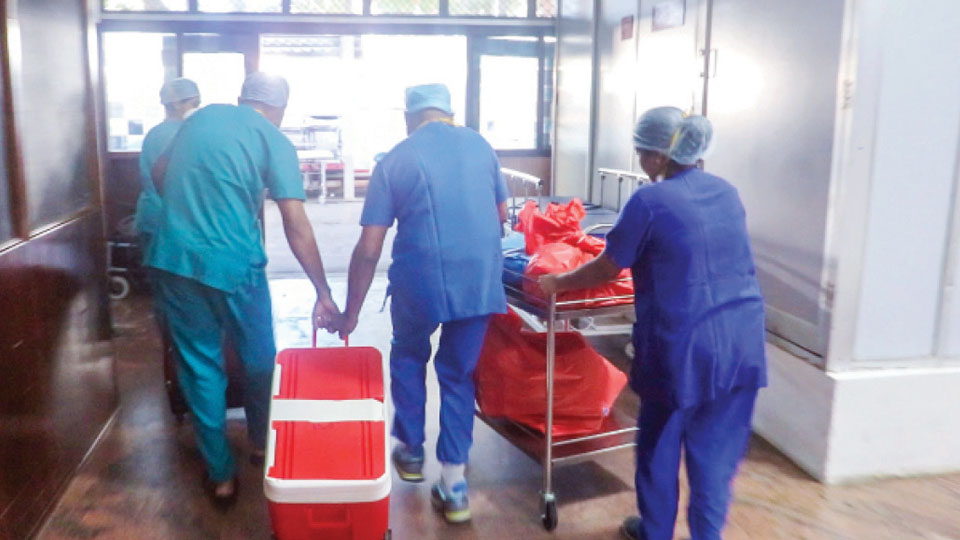

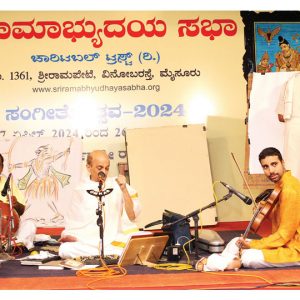
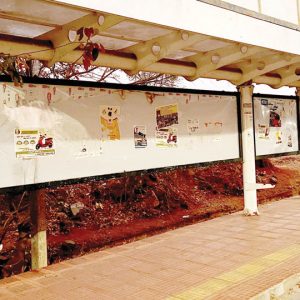
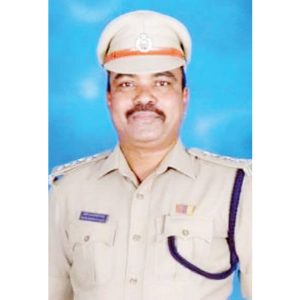
Recent Comments